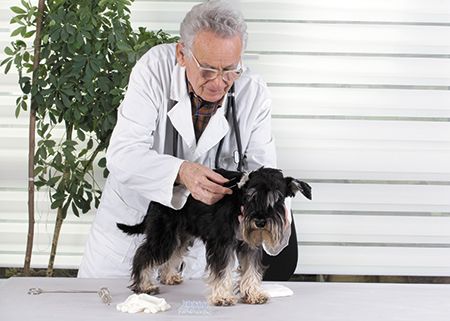Age is just a numberor is it? Pitting discrimination against practice needs
This veterinary hospital owner says his 67-year-old associate is slowing down and needs to consider retiring. Is he out of line? Dr. Rosenberg weighs in.

Shutterstock.com
Louis Hart, DVM, has owned the Hart Veterinary Center for 22 years. He started the practice from scratch with his initial patients being his two dogs and his mother-in-law's cat. Twenty-two years later, he employs five veterinarians, 14 technicians and four receptionists. He's a hands-on owner who attributes his success to the practice of high-quality medicine and not having any partners. He has always felt that compromise does not lead to true success-he chooses to succeed or fail based on his decisions and his alone.
All of Dr. Hart's veterinarians have been with him for at least 14 years. They are highly skilled clinically, well-compensated monetarily and devoted to the practice's culture of excellence. Dr. Gleason, the practice's longest-tenured staff member, is 67 years old. For the past 18 years he has enjoyed performing surgery, interacting with clients and not having the headaches of ownership.
Dr. Hart has noticed that Dr. Gleason is slowing down as the years creep by. His surgeries and exam room tasks are taking longer than they did in the past. He asks staff to assist him when lifting small pets. In addition he seeks help with fine-motor tasks, such as separating microscope slide cover slips and placing them in precise positions on slides. He isn't connecting with his young colleagues easily and feels a bit ill at ease in the clinic he has called home for 18 years. Still, Dr. Gleason has a devoted client following and is a beloved community veterinarian.
Dr. Hart, 11 years younger than Dr. Gleason, asks for a sit-down meeting. He tells his colleague he's noticed that the years are catching up to him. As difficult as it is for him to say it, Dr. Hart feels Dr. Gleason should consider retiring or at least semi-retiring from the practice. He says that at age 67, Dr. Gleason is not performing at the level of the younger veterinarians. And as the years go on, he'll certainly not improve, Dr. Hart says.
Dr. Gleason is candid with his boss. He asks if his performance is meeting the clinic standards of veterinary care. Dr. Hart agrees that it is but that progressive age-related inefficiency will soon drop him below clinic standards and Dr. Hart does not want that to happen. Both men are professional in their demeanor, but neither is happy with the discussion.
Two days later Dr. Gleason asks to revisit the conversation with the practice owner. He tells Dr. Hart that he feels he should not have been asked to leave or downsize his role in the practice based on his age. It's true that he has altered some of his techniques with the passing years. On the other hand, he is wiser, is more experienced and has greater overall perspective than some of his younger colleagues. Dr. Gleason adds that he certainly does not want to think he's being singled out in his workplace because of his age.
Dr. Hart listens and respects Dr. Gleason's self-advocacy, but he also hears the veiled threat of an age discrimination lawsuit in the conversation. He does not believes that age is the issue per se, but rather the way Dr. Gleason is aging. Even if he's not being discriminatory, though, the time, money and distraction would not be worth the formal defense in a civil case.
Dr. Hart withdraws his suggestion of retirement in lieu of scheduling the doctor for fewer hours. He is not happy to have his hands tied, as he describes it. Nevertheless, even with this setback, he will continue to pursue his level of staff performance excellence in his practice.
Is Dr. Hart being intolerant and discriminatory, or is he just working to make his practice the best it can possibly be? Let us know what you think at dvmnews@ubm.com.
Rosenberg's response
Let's get down to the nitty-gritty. A wise practice owner looks at a staff member and determines if he or she is an asset or a liability. There may be many considerations that lead to this conclusion. In our profession, it is not fair or productive to throw age alone into the mix. In the veterinary workplace, rigid rules and inflexible schedules lead to staff turnover.
In all honesty, well-trained doctors are easy to find. Our veterinary institutions turn out highly qualified graduates. But when you find a staff member with integrity, compassion and charisma, young or old, big or small, make the necessary concessions to hold onto them for dear life. After all, I have been in the exam room for half a century-and I still think I'm an asset.
Marc Rosenberg, VMD, is director of the Voorhees Veterinary Center in Voorhees, New Jersey. In his private time, he enjoys playing basketball and swing dancing with his wife. Although many of the scenarios Dr. Rosenberg describes are based on real-life events, the veterinary practices, doctors and employees described are fictional.